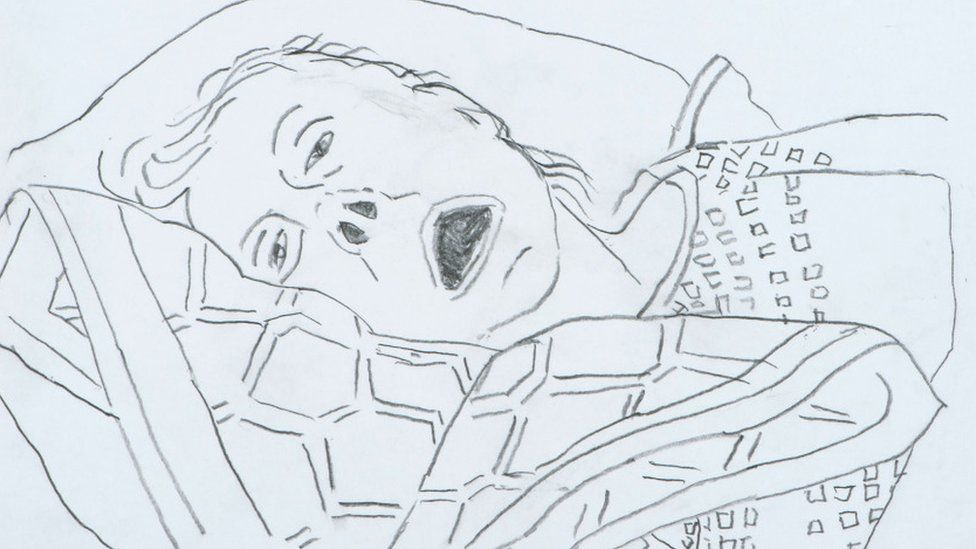It is the year 3001, and humanity has almost reached the point of no return: only a select few humans—known as “The Feelers”—are able to experience emotions, and a governmental program has decreed that they be medicated to ensure they to adopt the detached, unfeeling dispositions of the younger generations…
Syringe in hand, Doctor Albright marched her way down the ward with the determination of a lioness after its prey. Of all days, this had to happen today—when her parent had just died and a stack of administrative papers were piling up on her desk, awaiting her signature. But a Feeler! She would not pass up this opportunity for anything in the world. “Albright, patient 102 needs a wound debridement,” shouted the director of nursing. “Not today,” said the doctor between gritted teeth, waving the woman away. And now the med tech: “there’s a package from the coroner that requires your attention, doctor.” Doctor Albright stormed right past her colleague, who looked far too fresh-faced to hold such an expert position.
The Feeler had been discarded at the hospital in the early hours of the morning. It came from the south of the territory, they said, where the sun never stopped shining and cacti and succulents abounded. Doctor Albright had only ever seen one Feeler before. That time, she had arrived after the cure was administered, so she had yet to see a Feeler in action.
As she opened the door to unit 67, she was immediately struck by the smell of baby powder and mustiness. There it was, so tiny that it appeared to have been gobbled up by the bed. Looking closer, she could see the Feeler’s long silver hair sticking out of the clean white sheets. It was ancient—they always were. Only ancients had knowledge of the world before the age of desensitization. Some of them had lost their prior functions, but others, the stubborn ones, had hung on desperately to the emotions that made them so unique, and so weak.
Doctor Albright advanced towards the bed and observed that The Feeler’s eyes were dripping with liquid. Flipping through her dictionary of a mind, she surmised that it must be experiencing an emotion called sadness. The feeling of being unhappy, especially because something bad has happened. Or perhaps grief. Very great sadness, especially at the death of someone. There was only one way to find out.
“How are we doing?” she asked the Feeler. Her voice low, so as not to startle it. Noticing the doctor, perhaps for the first time, the Feeler’s eyes widened, and she started wailing: “my husband, my husband is dead!” Her small hand, wrinkled and spotted, no doubt from decades of living under the scorching sun, stretched out, reaching. Dumbfounded at this immediate outburst of emotion, Doctor Albright stood still, not knowing what to do. “We were so in love,” the Feeler wailed, “we were so in love,” her hand still grasping, empty, vulnerable.
“What—what can I do for you,” the doctor asked, her words stumbling out awkwardly. “My husband, my husband is dead,” wailed the Feeler. “He was old, but we were so in love, we were so in love!” “What can I do for you,” the doctor asked again, this time firmer. “Be with me, the Feeler said, and listen to me as I sing,” and in that moment the wailing turned into singing, the words pouring out in one of the old tongues, a love song. The doctor did as she was asked and stood there, for how long she could not say, because time seemed to stand still. Eventually, the Feeler’s chant started to fade, her hand lowered onto the mattress, as she fell asleep, grief still apparent on her contorted face. The time was nigh—without skipping a beat, the doctor dabbed the syringe into the Feeler’s bony arm, holding her breath as she watched the emotions dissipate into nothingness.
Until the day she died, Doctor Albright would tell herself that she had saved the Feeler from intense misery. Yet she could never get the Feeler’s chant out of her head, the song full of feeling, of sadness and passion. She knew that she would never know a love like that, a love so deep. Neither would her offspring—it was impossible, with the advances of the day. And so she kept to herself her secret yearning, while the Feeler’s song played repeatedly in her mind, a soundtrack to her life—a testament to the old times.
*
The game: you give Nina ([email protected]) a Buddhist-themed noun, an action, and a location, and I create the story. Today, she was given the noun “chant,” the action “to wait,” and a location “hospital ward.”


